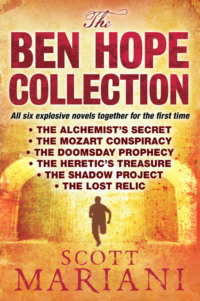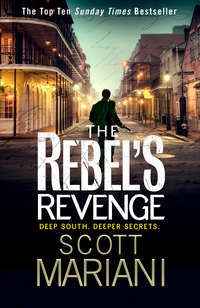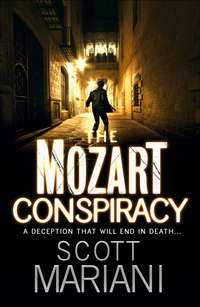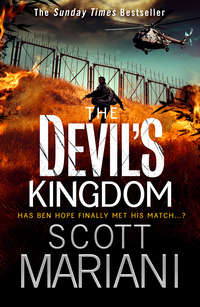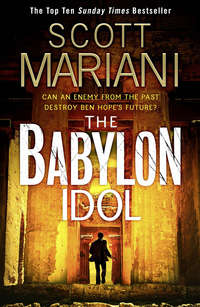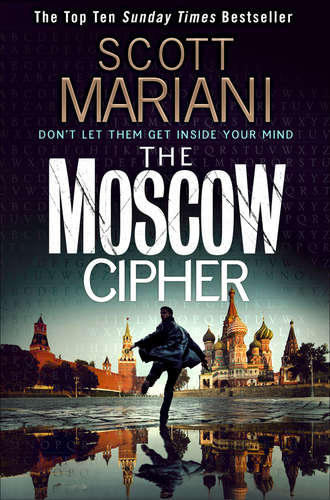
Полная версия
The Moscow Cipher
It hadn’t always been this way. Once upon a time, in the bygone days before he’d been sent into exile in Amsterdam, his Intelligence bosses had seemed to appreciate Yuri’s abilities. For Yuri might not have been endowed with many talents in his life, but for some reason and with very little effort on his part he just so happened to be a highly gifted code-cracker. Back in the day, Yuri’s capacity for deciphering signals intelligence – or ‘SIGINT’ as the Americans termed it – encryptions intercepted from rival agencies such as the Brits, the Yanks or those pesky Israelis had been second to none and earned him quite a reputation in Moscow. On several occasions, when Russian Intel operatives way above his pay grade had been unable to penetrate the firewalls protecting the secret files of MI6, CIA, Mossad and others, Yuri had been called in to assist. He’d cracked security passcodes that had been thought uncrackable, even complex fifteen-digit monsters that presented over 700 million billion billion permutations.
But that was long ago, before the relentless march of technology had taken all the intellectual challenge out of codebreaking and pretty much rendered talents like his obsolete. Nowadays it was all just a war between computers: one to weave the incredibly complex code, another to attack its defences, and the winner was simply whoever had the most powerful machine. With alarming rapidity, the human factor was being almost completely removed from the equation. After just a few years in the job, Yuri’s special skills had become increasingly redundant. Then came the Amsterdam posting, and the long, slow decline. Frustration grew to bitterness; bitterness to hatred: against his employers back home, and the whole damn government.
During this unhappy period he hooked back up with an old friend from school and began regular contact with him on social media. Yuri Petrov and Grisha Solokov had known each other since the age of seven, and had the usual on-off friendship until their teens, when they’d become best buddies for a while until Yuri drifted off to university in St Petersburg to study IT and Grisha went to work for his father, who owned a radio repair shop.
During the years the two friends had been out of touch, Grisha had discovered the wonderful world of conspiracy theories and become deeply immersed. The repair shop long gone, he now operated his own internet radio station from a hidden trailer at a remote farm many miles from Moscow. He lived alone with only a dog, an assortment of feral cats and a few goats and chickens for company, and spent most of every night in the trailer streaming his rants about everything from illegal government surveillance operations to chemtrails to the Illuminati plot to enslave the human race to the covert deportation camps that really existed, according to him, on Mars.
Needless to say, in their Facebook chats Yuri had never divulged to his friend what he did for a living, for that would have instantly branded him as the enemy. Grisha had his own secrets, too. Because his show frequently attacked what he considered to be the corrupt dark underbelly of the Russian state and its president in particular, he kept his location extremely hush-hush so as to elude the government assassins who he believed were intent on silencing him.
In short, Grisha was slightly nuts.
Looking back, Yuri couldn’t pinpoint the moment he’d started getting drawn into Grisha’s ideology. To begin with, he’d been dismissively sceptical of the whole thing, and almost stopped with the social media contact. The stuff his friend came out with was often more than Yuri could stomach, like his conviction that lizard-like alien beings capable of taking on human form really do run the planet, and that various celebrities as well as members of the British royal family were among these evil creatures hellbent on the total domination of humanity. But the more he’d listened to Grisha’s show, the more compelling Yuri started finding its less wacky theories of conspiracy and corruption at the heart of the global establishment. After all, Yuri was privy to facts and secrets that were kept from ordinary folks, and so it wasn’t hard for him to imagine that all kinds of levels of secrecy existed above him. Gradually, tiny doubts about his own government, and the state of the world generally, percolated through his head and wouldn’t go away, feeding his increasing sense of restlessness that he was a pawn working for dark powers.
Maybe it was just an expression of his dissatisfaction with his own job, he told himself. Yet the same creeping paranoia that fuelled Grisha’s radio show started haunting Yuri as he cycled the streets of Amsterdam. He became certain he was being watched and followed, his phone tapped, perhaps even his thoughts somehow monitored. A reasonably devout Catholic since his teens, he turned to God for moral support. When an answer to his fervent prayers failed to materialise, Yuri found solace in the sins of drink and marijuana, having developed a taste for both.
What made it so much worse was that he could never tell Eloise a word about his secret life, let alone the anxieties that plagued him. As a result he ended up barely speaking to her at all, with the inevitable consequence that she felt very neglected by him. When the marriage eventually fell apart, Yuri blamed the Russian intelligence services even more bitterly for his woes and took it as proof of their pernicious influence over society. Shortly after Eloise left him and took Valentina away to live in France, Yuri returned to Moscow, handed in his resignation and found alternative employment fixing computer bugs for private cash-paying customers. He managed to persuade Eloise to let Valentina, now ten, travel to Russia for visits. Eloise was difficult about it and barely spoke to him on the phone.
Yuri’s preoccupation with all things conspiracy-related had by then grown even more pervasive. Even if he wasn’t yet prepared to believe that shape-shifting alien lizards govern the planet, as a parent he was angry that his child would grow up as a drone of the globalist Deep State. He felt he needed to do something to make people wake up to the realisation that everything they thought they knew about the world was a lie. The media they trusted was simply an instrument for propaganda; the leaders they voted for in fact controlled nothing; the real rulers were hidden in the shadows and the whole concept of democracy was a carefully concocted myth.
He and Grisha now communicated daily on prepaid phones bought for cash and theoretically untraceable to them. On Grisha’s advice, as an extra precaution Yuri followed his friend’s practice of replacing his ‘burner’ every couple of weeks. As a means of living as much off the grid as possible in an urban environment, he also moved to a dingy hole of an apartment that he paid for in cash, utility bills all in the name of a former tenant.
He and Grisha started meeting in person. The first reunion took place at a bar in a small town eighty kilometres from Moscow. Later, as a sign of his growing trust, Grisha let Yuri in on the secret of his farm’s location, way out in the remote countryside. Never had Yuri mentioned his past as a spook for Russian intelligence. That was history now, anyway.
Over the next couple of years, Yuri visited the farm often. The two friends would spend days and nights in Grisha’s chaotic home drinking vodka and talking conspiracies. It was more than a hobby or belief system for Grisha, it was a total lifestyle. Yuri felt the infectious lure of that world. He was becoming seriously addicted.
‘It’s all building to a head, don’t you see?’ Grisha had kept insisting during their most recent late-night session. ‘It’s coming. Just you wait. Something’s going to happen that’ll prove everything we’ve been saying. Something that’ll show the world what these bastards have really been up to all along. Nobody will be laughing at us then.’
‘“Something”?’
‘Something huge, my man.’
Yuri believed it too, even if neither of them knew what that ‘something’ could be.
Then, one sunny day in June two years after he’d left Amsterdam, Grisha’s prediction came terrifyingly true, in a way neither of them could have imagined.
Chapter 2
For a dedicated conspiracy buff tainted by more than a whiff of paranoia, nothing could be more alarming than happening to be walking down the street minding your own business when a mysterious black car full of mysterious men suddenly appears from nowhere and pulls up beside you.
That was exactly what happened to Yuri Petrov one day that summer as he strolled aimlessly about the streets of Moscow. He instantly knew the black Mercedes was an Intelligence Services car. Gripped by panic, he was ready to bolt as the back doors opened and two men, very obviously government agents, climbed out and walked calmly towards him.
He’d never seen either of them before. But they seemed to recognise him, even with the hair and the beard. Yuri hadn’t been paying so much attention to personal neatness of late.
‘Hello, Yuri,’ one of them said.
The other motioned towards the car’s open door. ‘Let’s go for a drive, shall we?’
Powerless to refuse, Yuri climbed into the back seat. The two men sat flanking him as the Mercedes sped off. ‘What’s this about?’ he kept repeating. ‘Who are you people? What do you want with me?’
‘You’ll find out soon enough. Shut up and enjoy the ride.’
Twenty minutes later, the Mercedes arrived at a lugubrious government building Yuri had never visited before. They passed through two armed security checkpoints, then whooshed down a ramp into a subterranean car park from where Yuri’s escorts ushered him up several floors in a lift. They stepped out into a corridor that was devoid of any windows or furniture and painted institutional grey. Yuri was so nervous he could hardly control the shaking in his knees as they led him up the corridor. After two years of the Grisha Solokov academy, it seemed to Yuri like the dystopian nightmare coming true.
Yuri had no idea of what he was about to step into.
The agents stopped outside an unmarked door. ‘Go in,’ one said to Yuri.
Yuri did as he was told. He found himself in an office, not a cosy one. The walls and steel filing cabinets and ancient iron radiators and exposed pipes were all painted the same grey as the corridor. There was no carpet and only one window, through whose dusty glass little sunlight was able to penetrate. In front of the window was a large, plain desk, which was completely bare except for a telephone and a slim cardboard folder that lay closed on the desktop.
Behind the desk sat a man whom Yuri, unlike the men who had brought him here, did in fact recognise. It was his former chief, the man who had first interviewed and employed him in the service, Antonin Bezukhov.
The chief was a large, heavyset figure in a dark suit. His white hair was buzzed military-short and his face appeared to have been chiselled from a lump of granite. He had to be in his mid-seventies, but if anything he looked more severe and intimidating than Yuri remembered, which was saying something. This was a man rumoured to have personally executed several CIA operatives, back in the glory days of the Cold War. As far as Bezukhov was concerned, the old regime had never ended.
Bezukhov invited him to sit, and offered him a ghost of a smile. ‘You’re a hard man to find, Yuri. We obviously trained you too well. Where’ve you been hiding yourself these days?’
Yuri swallowed. ‘Why am I here? What do you want from me?’
‘We need you to come back and work for us, one more time,’ said Bezukhov.
‘But I’m retired,’ Yuri protested. ‘Out, gone, done with the whole thing. I don’t want anything more to do with any of it.’
‘Consider this your heroic comeback,’ the chief said, faintly amused. ‘Come on, Yuri, don’t you know that once you’re in the club, we’d never really let you go? That’s how the game is played, my friend. And now we have another job for you.’
Yuri could find nothing to say. Bezukhov reached a thick arm across the desk, and a brawny paw of a hand slid the solitary card folder over its surface towards Yuri. ‘Open it.’
Again, Yuri did as he was told. Inside the card folder was a transparent plastic sleeve, and inside that a single oblong slip of paper. It was heavily aged, as if it had spent many years exposed to the elements. And creased, as though it had been folded up very small throughout that time. Long ago, someone had written four lines of text on the paper, using black ink that had faded somewhat but was still clearly legible. The writing wasn’t in Russian. It used the letters of the English alphabet, though the language wasn’t English either.
‘It’s a cipher,’ Yuri said. An old one, too, dating back a good few decades. Seeing it, he couldn’t pretend not to feel a slight stirring of curiosity.
‘Good to see you haven’t lost your powers of observation, Agent Petrov.’
‘Please don’t call me that.’
‘This cipher is the reason I called you in,’ the chief said. ‘You’re going to decode it for us. Just like old times.’
Yuri studied the cipher more closely. Right away, he could tell it was like no other code he’d come across before. Even back in the pre-cybertechnology dark ages, cryptology had reached a level that was far from crude. ‘It’s not going to be easy.’
‘Why do you think we selected you for the task?’ the chief said. ‘Some people haven’t forgotten you used to have a way with these things, back in the old days before these fucking computers took over.’ He spat out the expletive with surprising bitterness.
As Yuri went on peering at the encrypted text, the chief recomposed himself and explained, ‘The cipher was discovered two weeks ago by a crew of workmen who were demolishing a block of old post-war houses in Novogireyevo District. Coming across an envelope that had been crammed into a crack in a wall, they opened it, saw it was something peculiar and handed it in to the police. Thank God for patriotism, heh?’
Yuri asked, ‘What was it doing there?’
Bezukhov smiled, aware that Yuri was being drawn in despite himself. ‘We believe that it was concealed there in February 1957 by a British spy working as part of a network. His cover ID was Pyotr Kozlov, real name Leonard Ingram, a British Army captain recruited to SIS after the war. He and a couple of others were inserted into the Soviet Union that January, as part of a special operation you don’t need to know about. Let’s just say they were stealing secrets. That was before the Anti-Fascist Protection Rampart was put up, and these shits could creep in and out almost as they pleased.’ This was all long, long before Yuri’s time, but he knew the chief was talking about the Berlin Wall.
Bezukhov levered himself from his chair and went to gaze out of the dusty window. With his back to Yuri he went on, ‘Of course, our boys were onto them the moment they stepped on Russian soil. And we had our suspicions about what they were up to. The cipher is obviously a set of instructions of some kind, which would indicate the nature of the secrets they stole, and their whereabouts. Ingram was on his way to pass those instructions to one of his fellow spies when the KGB jumped the gun and nabbed him too soon. If they’d allowed the meeting to take place, they could have captured both of them together as well as the information they were sharing.’ Bezukhov turned away from the window with a sigh. ‘Mistakes happen. Anyway, when he knew they were closing in on him, Ingram managed to hide what he was carrying, presumably intending to return there if by some miracle he escaped.’
‘But he didn’t.’
Bezukhov shook his head. ‘Before he knew it, he was carted off to Lubyanka for interrogation. Sadly for us, however, the clumsy fools who worked him over were a little overenthusiastic with their use of force. He expired before they were able to get much out of him.’
Yuri felt sick. He tried not to visualise the scene too vividly, but couldn’t shut off his imagination.
‘Before he died,’ the chief went on, ‘he revealed knowledge of some highly sensitive information. And I do mean highly,’ he repeated for emphasis. ‘We want to recover that information, and we believe the cipher is key to understanding how much he knew, who else might have been passed that information and how much damage might have been done to our security.’
‘So long ago,’ Yuri said, frowning. ‘How could it still be important?’
‘The biggest secrets are like plutonium,’ Bezukhov replied. ‘Their potency doesn’t fade over time.’
The chief let those words hang in the air for a moment, then yanked open a drawer of his desk. ‘As you probably know, the old KGB archives on dissidents and enemy spies detained during the Cold War were never destroyed after the fall of the Soviet regime. They were simply hustled away to a new location and now reside inside a high-security underground vault, one to which I happen to have access. I’ve examined the contents of Ingram’s file and found something that may be of value to us. Ingram was carrying these items the night he was captured.’
Bezukhov took a packet from the drawer and slid it across the desk towards Yuri. Yuri hesitated, looked inside, then glanced quizzically up at the chief.
‘Tuning forks,’ Bezukhov said. ‘Part of his cover. Never mind those. It’s the book I’m interested in.’
The paperback was an old mid-fifties edition of Lucky Jim by the English novelist Kingsley Amis, yellowed by decades spent in secret government storage.
‘Certain pages of the book appear to have been very well thumbed,’ Bezukhov said. ‘You know what that means.’
Yuri did indeed. Old-fashioned ciphers often made use of random phrases and passages from books, likewise chosen at random and known only to the codemaker and the codebreaker. Without the book, it could be literally impossible to decipher the encrypted message. Yuri shook his head. What a fool the British spy had been, to be caught with it. A basic error of tradecraft, one that had cost him dear. Needless to say, Russian agents didn’t make such mistakes.
‘Get to work,’ Bezukhov said. ‘I expect results, Agent Petrov, and I expect them soon. And for pity’s sake, get a shave and a haircut. You look like one of the beatniks we used to send to the Gulag.’
Chapter 3
Yuri returned to his dingy apartment, his nerves rattled by the idea that the intelligence services could just scoop him up and put him back to work like he was one of their mindless, unquestioning drones. But what choice had he, other than to do their bidding?
And if he was perfectly honest with himself, a tiny part of him was thrilled to be working on the cipher. For so long, he had lacked any sense of purpose. This was the stuff he did best, and he was determined to crack it. Not just to please Bezukhov, but to prove to himself that he still had what it took.
First impressions had been right: the cipher was indeed like nothing else he’d encountered before. It was like a modern-day locksmith suddenly faced with picking some antiquated and fiendishly complex device from ancient China or Egypt. Yuri carried it over to the cluttered work table in the corner of his tiny living room. With a cup of coffee at his right elbow, Ingram’s copy of Lucky Jim at his left and the cipher, notepad, pen and his trusty laptop in front of him, he got down to his task with an energy he’d forgotten he had. The laptop was loaded with a decryption program he’d designed himself, called CAESAR. But, just like in the good old days, technology would be no substitute for sheer brainwork. Man, not machine, would be doing most of the heavy lifting.
The thing was a modified Polybius square with straddling bipartite monoalphabetic substitution, superenciphered by double transposition. In short, it was a tough little bastard to crack. Without the yellowed, dog-eared old book, he’d have been lost. Somewhere within its pages was the key to whatever message the British spy had been trying to pass to his colleagues. He was damned if he couldn’t find it.
Yuri worked all night. And all of the next day. And all of the following night as well. He worked until he was exhausted, skipping meals, snoozing for short periods at the desk, reluctant to leave his chair even for toilet breaks. He worked until the whole room was littered with screwed-up sheets of paper covered in gobbledegook.
But he got it. Finally, as the first streaks of dawn were breaking on the third day, with just a little help from CAESAR, he got it.
When the computer finally spat out the finished decryption, Yuri fell back in his chair and stared at the screen for a long time. The decoded message was short. The bottom lines were a set of geo coordinates. The top line consisted of just five words, in English. OPERATION PUPPET MASTER IS REAL.
Those five words couldn’t have hit Yuri harder if they had been bullets fired from a high-powered rifle.
‘Operation Puppet Master’ was the translation of the Russian ‘Oперaция кукольныи мaстер’, and one of the great mythical beasts in the pantheon of conspiracy theory dating back to Cold War times. On internet forums and all across the blogosphere, debate still raged among paranoid nutjobs and serious investigators alike over whether the highly classified Soviet project had ever been more than a wild fantasy. He and Grisha had talked about it often. While Grisha was an avid believer, of course, Yuri had been privately sceptical: file under ‘Giant Alien Lizards’.
Suddenly that scepticism had been blown to smithereens. ‘You’ve got to be fucking kidding me,’ he breathed.
The bastards had actually been developing this stuff all along? It was real?
Not only real, but worrying enough, apparently, to have drawn the attention of SIS, the British Intelligence Service, precursor to MI6, so long ago. Enough of a threat for the likes of Captain Leonard Ingram to risk and lose his life over. Things didn’t get more real than that.
Yuri fed the geo coordinates into Google and discovered that they pointed to a location right here, in Moscow. It was obvious what he had to do next.
Yuri’s car was an ancient Volkswagen that wheezed and rattled and grew lighter each year as more parts dropped off. Traffic was mercifully sparse at that time of morning, and the banger was able to reach its destination without expiring. The area was in the east of the city, part of the Novogireyevo district where the KGB had apprehended the British spy back in ’57. The coordinates led Yuri to a fenced-off row of old Soviet-era warehouses that must have been disused even then, now decades overdue for demolition.
Ingram’s decoded directions were amazingly precise. Behind a stack of rusty, jagged metal and empty crates, Yuri came across the tobacco tin exactly where the spy had left it all those years ago. He hustled back to his car to open it. The round pocket-sized tin was red with rust on the outside, but when he used a coin to pop the lid he found the airtight seal still intact, opening with a little hiss of stale air trapped in there since 1957.
Inside the tin was a roll of microfilm, then the summit of technology, nowadays easily scanned and read on a home computer. The other item left Yuri breathless. He peeled away the square of oiled cloth in which it had been wrapped, and let the thing roll into the cupped palm of his hand, careful not to drop it. It was only a few millimetres in length, oblong-shaped and rounded at both ends like a medicine capsule, but made of shiny metal that was smooth and cold to the touch. If it was what Yuri thought it was, it was beyond sensational. Its discovery could change everything. Never mind myths and speculation: here, for the first time, was the hard physical evidence that could blow the lid right off the whole conspiracy.
No wonder Bezukhov and his people didn’t want this coming out. Like plutonium, the chief had said. The secret was as explosive now as it had been sixty years ago. Maybe even more so. What were these bastards still up to? How much more advanced must the technology be today? It was a terrifying thought.



